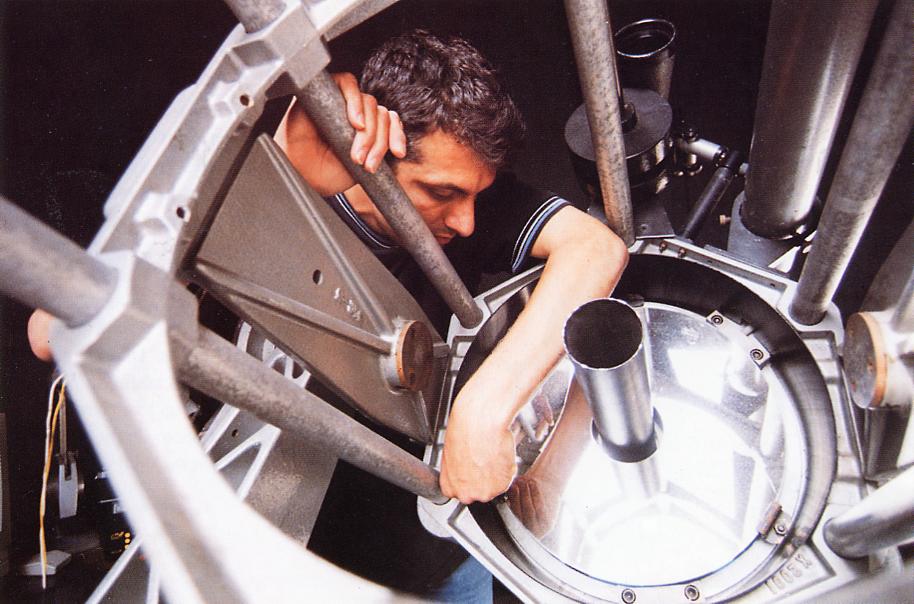Observing is, of course, a key aspect of astronomy: without observations we would have no data on which to base our understanding of planets, stars, galaxies and the Universe. Unfortunately, optical observations require a clear dark sky, which is in short supply in Sheffield! This is why your astronomy laboratory exercises, with the exception of the Observing Practical in PHY115, do not include "real" observational work. Nevertheless, we would like you to have the opportunity to do some real observing. The Department now has a fully automatic robotic telescope on the roof of the Hicks Building, which can be operated remotely from a PC connected to the Internet. The Positional Astronomy course in the second half of semester 1 (PHY115) covers the knowledge and skills you need to use this, and culminates in a "driving test" where you demonstrate these skills to an instructor. If successful in this, you will be given a "licence" (username and password) to access the telescope, and will be expected to carry out an observational task using this telescope between then and the end of January. (Allowances will obviously be made if the weather is so appalling that there are no clear nights during this period!) You are also encouraged to sign up for general observing sessions. The Astronomy Technician Paul Kerry organises observing sessions on clear nights: sign up on the sheet posted outside the Astronomy Lab (on the grey noticeboard to the left of the lab door as you look at it). Sign up for any nights that you are free, and if the weather seems clear check back at 5 pm to see if the session is on. If it is, Paul will put a note on the board giving the rendezvous time. Note that on these session priority is given to second year students who are doing assessed observational projects, but you should get a chance to look through a telescope at some point. observing projectsAlternatively, click on the title above for a list of astronomical observing projects that you can do yourself, either with the naked eye or with the aid of a decent pair of binoculars. The module numbers indicate which of the taught courses is relevant to each project. If you do one of these projects and write it up carefully, as you would a lab assignment, you may be able to claim extra lab credit: take your completed write-up to Dr Littlefair or Dr Cartwright for assessment. |
| © 2006 The University of Sheffield |

